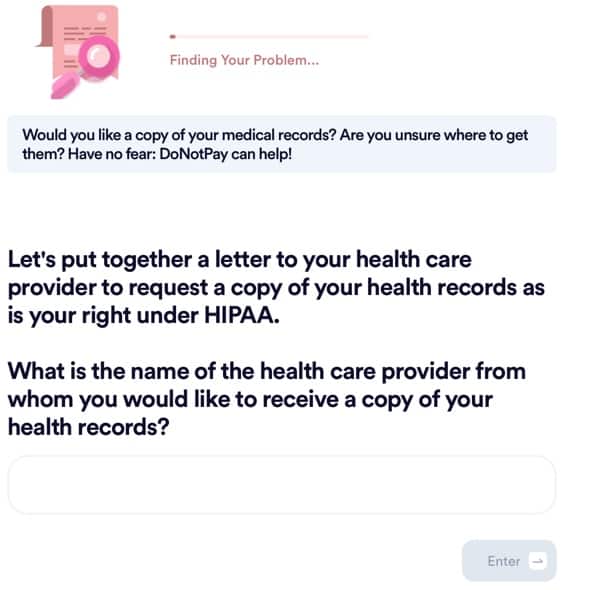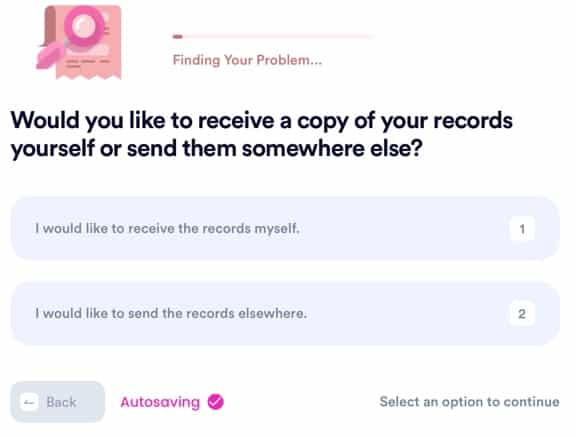What Happens When a Doctor Declines to Release Your Medical Records?
Yes, they can. A healthcare provider can deny a patient their request to get or see a copy of their medical record. Of course, the law says that you have a right to get copies of your medical records.
However, that does not imply that all covered entities will be ready to supply such information. Also, understand that your insurer or healthcare provider may deny you access for reasons that are important to them, even when they do not make sense to you.
According to the Health Insurance Portability and Accountability Act (HIPAA), it is illegal for a doctor to deny you access to your medical records, depending on the situation at hand.
Parts of Your Medical Records That Your Physician Can Deny You Access
A physician can deny you access to the following.
- Clinical records and substance abuse program records of facilities operated or licensed by the Office of Mental Health. The reason is that Mental Hygiene Law provides a separate process for releasing such records.
- Personal notes and observations.
- Data obtained from other physicians still in practice. Whoever needs such information should request it directly from the practitioners.
- Any details disclosed to the practitioner on condition that they will be kept confidential.
- Information that a physician believes can cause significant harm to others or the patient.
- Data that the practitioner believes should not be disclosed pertaining to the treatment of a minor. Note that a patient at least 12 years old can be advised of a records request. If he or she objects, the provider can deny the request.
FAQs About Denial of Medical Records
Will Your Doctor Give You The Original Paper File After Making A Request?
That cannot happen because it is not how it works. If your doctor's office maintains a paper file for your you will not get the original paper file. Understand that you cannot receive the original paper file of such records.
Also, you should not expect to receive your blood test results that have the doctor's original signature approving the results and the doctor's notes in his original ink and handwriting. Instead, your doctor's office will make copies of your medical records.
As such, copies will be what you get after requesting your medical records since your doctor's office will never give you access to your original medical chart. It is a requirement for your doctor to maintain your original chart at all times over the ordinary course of business.
Additionally, your doctor should use reasonable means to safeguard the contents of your file. For instance, they can choose to maintain date and time-stamped electronic medical records. In that case, any doctor or staff making an entry in your electronic record will leave an electronic trail.
What Should You Do Before Complaining About Denial of Your Medical Records?
Before making a complaint about a doctor's decline to access your medical records, ensure you follow the steps below.
- Wait long enough.
- Verify whether or not you have a right to access the records you are requesting.
- Assess whether you have made the request of a covered entity.
- Follow the right steps for accessing your medical records.
If you have fulfilled the above steps and a doctor is still denying you access to your medical records, consider making a complaint to the U.S. Department of Health and Human Services.
Note that the complaint must be filed within 180 days of the denials, and the law prohibits retaliation on the part of the covered entity.
Using DoNotPay to Access Your Medical Records
If you need to write your healthcare provider an effective, simple, and clear letter to help you access your medical records within the shortest time possible, DoNotPay will come in handy in this case.
How to request medical records using DoNotPay:
DoNotPay has seen these requests before and knows how to write your health care provider a simple, clear, and effective letter that will get your legally-guaranteed health records for you in no time.
- Look up medical records on DoNotPay’s website.

- Enter the name of the health care provider you’d like to receive medical records from.

- Answer a few questions about your provider and where you’d like to send the records.

Why Using DoNotPay to Request Your Medical Records Is Advisable
| It Promotes Success | You will access the guidance you need when using DoNotPay, which yields success. |
| Speed | It takes a shorter period to get your medical records using DoNotPay. |
| It Fosters Seamlessness | You do not have to fill out tedious forms and keep track of every step involved in accessing your medical records when using DoNotPay. |
Where Else Is DoNotPay Applicable?
- It facilitates the process of suing anyone in small claims court
- Preparing an advance healthcare directive using DoNotPay is possible
- Sometimes, requesting sick leave becomes necessary, and DoNotPay can help with that
- If you have trouble addressing birth certificates issues, DoNotPay will prove a reliable tool in such a situation
- Learn medical records
- Electronic health records
- Medical records release
- Kaiser medical records
- How long are medical records kept
- How to request medical records
- Mercy medical records
- How to get my medical records
- Baptist medical records
- Cleveland clinic medical records
Probably, you have been wondering whether a doctor can refuse to release your medical records. The details above have shed light on that, in addition to valuable information about the issue. On the other hand, if you have problems accessing your medical records, consider with DoNotPay today!
 By
By